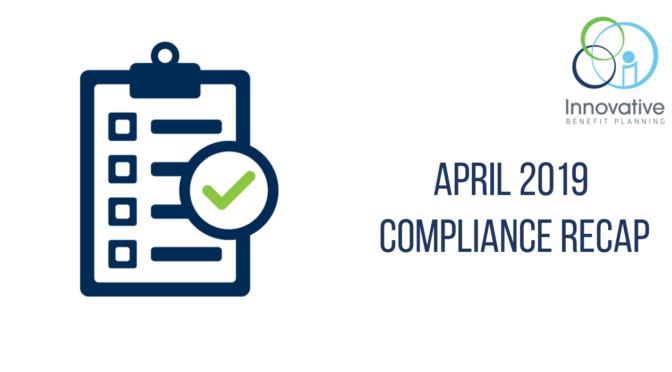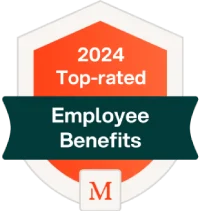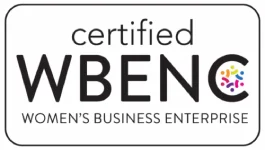April 2019 Compliance Recap

April was a busy month in the employee benefits world.
The Centers for Medicare & Medicare Services (CMS) issued its parameters for the defined standard Medicare Part D prescription drug benefit for 2020. In the court case challenging the Patient Protection and Affordable Care Act’s constitutionality, the court will hear oral arguments during the week of July 8, 2019.
CMS released its 2020 Benefit Payment and Parameters final rule and fact sheet. The Department of Labor (DOL) started its appeal of the court case that invalidated portions of the DOL’s association health plans final rule. The DOL also released a statement regarding its enforcement of the final rule.
The Department of Health and Human Services (HHS) issued a notice that all Health Insurance Portability and Accountability Act of 1996 (HIPAA) enforcement actions will be governed by lower interim civil monetary penalty amounts as a matter of HHS’ enforcement discretion, pending rulemaking to change the current civil monetary penalty limits.
The Internal Revenue Service (IRS) released a memorandum regarding S corporation 2-percent shareholders’ deduction of group health plan coverage premiums paid or reimbursed by an S corporation.
CMS Releases 2020 Parameters for Medicare Part D Prescription Drug Benefit
The Centers for Medicare and Medicaid Services (CMS) released the following parameters for the defined standard Medicare Part D prescription drug benefit for 2020:
| Deductible | $ 435 |
| Initial coverage limit | $ 4,020 |
| Out-of-pocket threshold | $ 6,350 |
| Total covered Part D spending at the
out-of-pocket threshold (for beneficiaries
who are ineligible for the coverage gap
discount program) | $ 9,719.38 |
| Minimum cost-sharing in catastrophic coverage
portion of the benefit | $ 3.60 for generic/preferred multi-source drugs
$ 8.95 for all other drugs |
Generally, group health plan sponsors must disclose to Part D eligibility individuals whether the prescription drug coverage offered by the employer is creditable. Coverage is creditable if it, on average, pays out at least as much as coverage available through the defined standard Medicare Part D prescription drug plan.
Status of Court Case Challenging ACA Constitutionality
As background, in February 2018, twenty states filed a lawsuit asking the U.S. District Court for the Northern District of Texas (Court) to strike down the Patient Protection and Affordable Care Act (ACA) entirely. The lawsuit came after the U.S. Congress passed the Tax Cuts and Jobs Act in December 2017 that reduced the individual mandate penalty to $0, starting in 2019.
On December 14, 2018, the Court issued a declaratory order that the individual mandate is unconstitutional and that the rest of the ACA is unconstitutional. The Court granted a stay of its December 2018 order, which prohibits the order from taking effect while it is being appealed in the Fifth Circuit Court of Appeals (appeals court).
The appeals court will hear oral arguments during the week of July 8, 2019.
CMS Publishes 2020 Benefit Payment and Parameters Final Rule
The Centers for Medicare and Medicaid Services (CMS) published its final rule and fact sheet for benefit payment and parameters for 2020. Although the final rule primarily affects the individual market and the Exchanges, the final rule addresses the following topics that may impact employer-sponsored group health plans:
- The 2020 maximum annual limitation on cost sharing is $8,150 for self-only coverage and $16,300 for other-than-self-only coverage.
- For fully-insured plans, any indication of a reduction in the generosity of a benefit for individuals that is not based on clinically indicated, reasonable medical management practices is potentially discriminatory.
- Amounts paid toward cost sharing using direct support by drug manufacturers (for example, coupons) to insured patients to reduce or eliminate immediate out-of-pocket costs for specific prescription brand drugs that have a generic equivalent are not required to be counted toward the annual limitation on cost sharing.
- Federally Facilitated Small Business Health Options Programs (FF-SHOPs) may operate a toll-free hotline rather than a more robust call center.
The final rule is effective on June 24, 2019. The final rule generally applies to plan years beginning on or after January 1, 2020.
Read more about the final rule.
DOL Appeals Association Health Plan Court Case
On March 28, 2019, the U.S. District Court for the District of Columbia (Court) found that the DOL’s association health plans final rule exceeded the statutory authority delegated by Congress under the Employee Retirement Income Security Act (ERISA) and that the final rule unlawfully expands ERISA’s scope. In particular, the Court found the final rule’s provisions – defining “employer” to include associations of disparate employers and expanding membership in these associations to include working owners without employees – were unlawful and must be set aside.
On April 26, 2019, the Department of Justice (DOJ) filed a notice of appeal. On April 29, 2019, the DOL issued a statement regarding its enforcement policy regarding the final rule. In light of the court’s decision, the DOL will not take enforcement action against:
-
employers and associations for potential violations stemming from actions taken before the court’s decision:
- if the employer or association relied in good faith on the AHP final rule’s validity and
- as long as the employers (and association) meet their responsibilities to association members and their participants and beneficiaries to pay health benefit claims as promised.
-
existing AHPs for continuing to provide benefits – to members who enrolled in good faith reliance on the AHP rule’s validity before the court’s order – through the remainder of the plan year or contract term that was in force at the time of the court’s decision.
This means that the DOL will not enforce potential violations that may have occurred before March 28, 2019. However, the DOL will enforce violations that occur on or after March 28, 2019. Because the DOL has not asked for a stay of the court order, associations cannot form self-funded AHPs under the final rule and existing AHPs must not market to new enrollees or sole proprietors.
Employers and their employees who are currently participating in an insured AHP under the final rule can generally maintain their coverage through the latter of the end of the plan year or contract term. However, at the end of the plan year, the issuer will only be able to renew coverage for an employer if the coverage complies with the relevant market requirements for that employer’s size, rather than the association’s size.
For example, if a small employer and a sole proprietor joined an insured AHP under the final rule, then at renewal, an insurer can only sell coverage that complies with the small group market rules to the small employer and that complies with the individual market rules to the sole proprietor.
In the upcoming months, the U.S. Court of Appeals for the District of Columbia Circuit will consider the legal arguments in this case. Employers in AHPs should keep apprised of future developments in this case.
Read more about DOL’s enforcement of the final rule.
HHS Issues Notification Regarding the HIPAA Civil Monetary Penalty Tiers
On April 30, 2019, the Department of Health and Human Services (HHS) issued a notice that all Health Insurance Portability and Accountability Act of 1996 (HIPAA) enforcement actions will be governed by the following interim penalty tiers as a matter of HHS’ enforcement discretion:
| Culpability | Penalty per violation | Annual limit |
| No knowledge | $100 – $50,000 | $25,000 |
| Reasonable cause | $1,000 – $50,000 | $100,000 |
| Willful neglect – corrected | $10,000 – $50,000 | $250,000 |
| Willful neglect – not corrected | $50,000 | $1,500,000 |
The notice doesn’t legally bind HHS and doesn’t create legal rights for covered entities such as employers’ group health plans.
Practically speaking, the penalty amounts have not changed. The civil monetary penalties under HIPAA, as amended by the Health Information Technology for Economic and Clinical Health (HITECH) Act, continue to be:
| Culpability | Penalty per violation | Annual limit |
| No knowledge | $114 – $57,051 | $1,711,533 |
| Reasonable cause | $1,141 – $57,051 | $1,711,533 |
| Willful neglect – corrected | $11,410 – $57,051 | $1,711,533 |
| Willful neglect – not corrected | $57,051 | $1,711,533 |
However, HHS may exercise discretion to impose a lower penalty amount if a covered entity, such as a health plan, is facing enforcement for violating HIPAA or HITECH.
HHS plans to engage in rulemaking to revise the penalty amounts. If and when final regulations are issued, then the revised penalty amounts will become law.
IRS Releases Memo on 2-percent Shareholders’ Health Coverage Deductions
The Internal Revenue Service (IRS) released a memorandum to confirm that a person who is a 2-percent shareholder (through Internal Revenue Code §318’s attribution rules) in an S corporation is entitled to a deduction for the amounts paid by the S corporation under a group health plan.
For the 2-percent shareholder to deduct the health insurance premium amounts, the S corporation must report the health insurance premiums paid or reimbursed as wages on the 2-percent shareholder’s Form W-2 in that same year. Also, the shareholder must report the premium payments or reimbursements from the S corporation as gross income on the Form 1040, U.S. Individual Tax Return.
Question of the Month
- What are the penalties for failing to comply with Section 125 requirements, such as failing to follow a cafeteria plan document’s terms?
- An operational failure occurs when a plan fails to follow its cafeteria plan document’s terms. There are several potential penalties for operational failures, including:
- Cafeteria plan disqualification
- Requiring the cafeteria plan to comply with Section 125 and its regulations, including reversing transactions that caused noncompliance
- Imposing employment tax withholding liability and penalties on the employer regarding pre-tax salary reductions and elective employer contributions
- Imposing employment and income tax liability and penalties on employees regarding pre-tax salary reductions and elective employer contributions
This information is general and is provided for educational purposes only. It reflects UBA’s understanding of the available guidance as of the date shown and is subject to change. It is not intended to provide legal advice. You should not act on this information without consulting legal counsel or other knowledgeable advisors.

Categories
Archive








